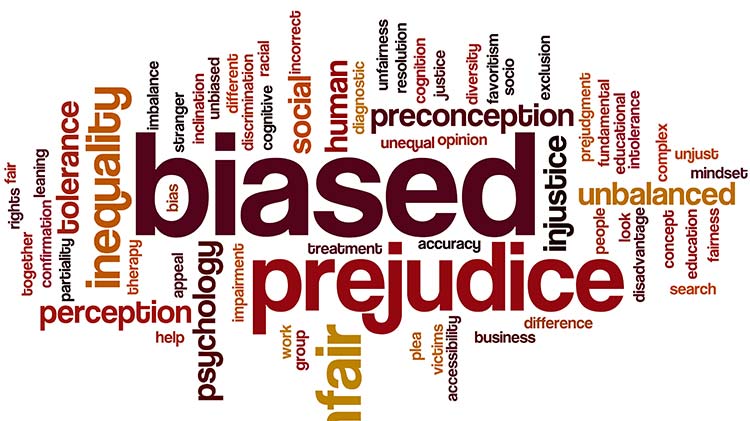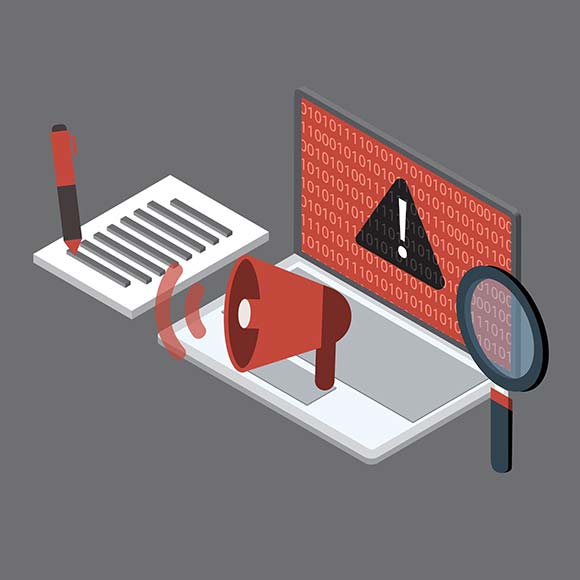
Bias Education & Response
Our Mission
It is the mission of Coastline College's Bias Education & Response Team (BERT) to foster an environment that is safe, inclusive, and equitable by responding to incidents of bias on our campus. To promote understanding, dialogue, and respect among all members of our college community, our team is dedicated to fostering understanding, dialogue, and respect. Through our work, we strive to empower individuals affected by bias and to educate the broader campus community about the impact of bias and the importance of creating a culture of inclusion on campus. Throughout the process of proactive outreach and support, we seek to create a climate in which everyone feels valued, respected, and able to thrive academically, socially, and personally.
Types of Incidents
A Bias Incident refers to behavior, speech or expression that reveals conscious or unconscious bias, which targets individuals or groups based on but not limited to their race, color, ethnicity, nationality, economic background, age, physical or mental health or ability, sexual orientation, sex, gender identity or expression, marital status, veteran status, or religious practice.
Speech or expression that is consistent with the principles of academic freedom does not constitute a bias incident.
Bias may be directed toward an individual or group. Bias may contribute to creating an unsafe, unwelcoming environment.
A Hate Crime is any criminal act or attempted criminal act directed against a person or persons based on the victim's actual or perceived race, nationality, religion, sexual orientation, disability or gender.
Bias impact is harm caused by bias, prejudice, hate, and/ or bigotry. Bias impact can include but is not limited to:
- Interference with ability to work, learn, and maintain healthy relationships.
- Marginalization from the community and barriers to participation.
- Rendering groups more vulnerable, powerless, and feeling unwelcome.
- Increased distrust and the erosion of a healthy sense of community.
Some bias incidents may also be considered a hate crime, but not in every circumstance. But, if it is determined that a hate crime occurred, then the incident will also always be considered a bias incident.
-
Definitions - cont.
- Hostile or Offensive Environment
- A hostile work, learning, co-curricular, social or living environment occurs when an individual is subjected to unwelcome statements, jokes, gestures, pictures, touching, or other conduct that offends, demeans, harasses, or intimidates and is based on one or more of the protected characteristics. The violating conduct may involve a single serious and offensive event, or many involve persistent harassing behavior that occurs over time.
- Examples of persistent harassing behavior include students in a class ask a teaching assistant not to tell jokes targeted at individuals of a particular race, national origin or sexual orientation, but they continue to do so; or an employee asks a supervisor not to touch the employee, but the supervisor continues to do so.
- Examples of a single serious and offensive event could include an intentional, non-consensual touching of an intimate body area of another person; or an instructor humiliating a student in class by making a joke about the student's disability.
- Harassment also includes offensive verbal or physical conduct or text or graphic communication including through social media that has the purpose or effect of interfering with an individual's work or educational performance or has the purpose or effect of creating an intimidating, hostile, or offensive environment.
- Implicit Bias
- Attitudes or stereotypes that affect our understanding, actions, and decisions in an unconscious manner.
- Microaggressions
- Verbal, nonverbal, and environmental slights, snubs, or insults, whether intentional or unintentional, which communicate hostile, derogatory, or negative messages to target persons based solely upon their group membership.
- Prejudice
- Attitudes, beliefs, and/ or decisions held without facts, experience, or adequate knowledge most often used to refer to preconceived, usually unfavorable, judgments toward people because of assumptions about their identity or identities.
For more definitions please view AP 3410.
Reporting Incidents and Follow Up
Coastline College encourages all employees, students, and volunteers, acting in good faith, to report suspected or actual wrongful conduct. We are committed to protecting individuals from interference with making a good faith report and from retaliation for having made a good faith report or for having refused to engage or participate in wrongful conduct.
You are welcome and encouraged to report an incident that you think has already been reported. We value each personal perspective about bias-related incidents. These perspectives will help us respond appropriately to a bias-related incident.
Incident Management

- Incident Report Submitted - Confirmation email sent.
- Incident Report Reviewed by BERT - Report forwarded via email to appropriate department.
- If impacted party is a student: Student Services
- If impacted party is staff/faculty: Human Resources
- If incident includes a hate crime: Campus Safety Director or local police
- All other incidents stay with BERT
- Reporting Party Contacted (if not anonymous / requested to not be contacted) - Completion of an Intake / Assessment. Care and support provided which may include the following:
- 1-1 follow up meeting
- Restorative justice
- Conflict resolution with alleged party
- Engage leaders to address systemic issues
- Summarized Climate Reports - Annual reporting to DEISAA Committee and Presidents Cabinet.
- Reports received
- Campuses reported
- Motivations reported
- Response data
- Impact
- Trends
Resources
-
Help
Resources aimed at providing information and assistance for individuals seeking guidance in navigating bias incidents. Empower yourself with knowledge and support in addressing and understanding bias-related challenges.
- Groundswell
- Health Equity in Orange County
- VietRise
- Chirla
- Orange County Congregation Community Organization (OCCCO)*
- Education for Racial Equity
- Orange County Human Relations
*Faith-based
-
Heal
Support for individuals who have experienced bias incidents or those seeking to assist someone in such situations. These materials aim to facilitate healing and contribute to fostering a campus environment that prioritizes the well-being of all individuals.
- Coastline's Student Mental Health Services
- Coast Community College District (CCCD) Resources
- Community and College Crisis Resources
- National Alliance on Mental Illness (NAMI)
- The Four Bodies: A Holistic Toolkit for Coping With Racial Trauma
- Dealing With Racial Trauma Through Meditation
- 5 Self-Care Practices Black People Can Use While Coping With Trauma
-
Learn
Learning resources focused on bias education. These materials are designed to deepen understanding and foster an inclusive and equitable environment.
Policies
- BP 3435
- BP 3420
- BP 7100
This Interrupting Microaggressions Table provides an outline of how certain words and phrases communicate, perhaps an unintended message to the receiver as well as statements and phrases witnesses or targets may use to engage with responsible persons when microaggressive behavior occurs.
Cornerstone Resources
- 5-Day Challenge to Improve Your Mental Health
- What Are Your Biases?
- How Do I Examine My Own Bias?
- How to Talk About Bias
- Build Structures to Combat Bias
- How Unconscious Bias Affects Your Work, Whether You Know It or Not
- Workplace Violence Prevention Made Simple
- Preventing Bullying and Violence
- Harassment Short: Preventing Workplace Violence
BERT Selected Learning Resources
- Microaggressions in Everyday Life, 2nd Edition
- Sue, D. W., & Spanierman, L. B. (2020). Microaggressions in everyday life (2nd ed.). John Wiley & Sons, Inc..
- Dismantling Everyday Discrimination: Microaggressions Toward LGBTQ People, 2nd Edition
- By Kevin Leo Yabut Nadal
- Publication date: March 2023
- Radical Inclusion: Seven Steps to Help You Create a More Just Workplace, Home, and World
- By David Moinina Sengeh
- Flatiron Books: A Moment of Lift Book (May 2, 2023)
Employee Assistant Program (EAP) Information
The Coast Community College District (CCCD) provides access to confidential professional counseling for all active employees and family members through the Employee Assistance Program (EAP). The EAP is a resource to help you deal with personal matters affecting your life. It provides confidential counseling through professionals outside the Company to assist in resolving problems.
Help is provided through Anthem Blue Cross, by experienced professionals as well as licensed psychotherapists. They will help assess the problem and refer you to the appropriate resource.
-
FAQs about the EAP
How do I make an appointment?
Call the Anthem Blue Cross 24-hour hotline at 1-800-999-7222. An experienced counselor will call you to answer your questions and/or set up an appointment or you may go to anthemeap.com and enter "CCCD".
What kinds of problems will the EAP address?
The program can provide assistance for all kinds of personal problems:
- Marital/family
- Alcohol and drug abuse
- Depression
- Stress management
- Financial troubles
- Child/adolescent behavior problems
Is counseling really confidential?
Absolutely. Everything discussed in counseling sessions is completely confidential.
- No information is entered in your personnel records.
- No information about your personal problem is shared with Coast Community College District (CCCD) without your written consent.
- No records are kept at CCCD.
If you contact EAP yourself, your employer will have no knowledge of your participation in counseling. If your supervisor refers you to the EAP and you choose to enter counseling, you alone may permit the EAP to inform your supervisor as to whether you kept the referral appointment and if you are following a treatment plan. No other information is divulged.
What if I need additional help?
Your employer pays for the evaluation sessions or up to 6 sessions every 12 months for you or your family member. If you need the help of an outside resource, your counselor will recommend the best service at a reasonable cost. Although you are responsible for the cost of treatment outside of the EAP, in many cases your Medical Plan will cover the majority of the expense. For those employees or dependents with an HMO, the EAP can help you to access appropriate treatment through your HMO. Check with your Benefits Office (ext. 84727) for name of preferred treatment providers.
Bias Education & Response Team (BERT)
The purpose of this team is to provide education around what constitutes bias, its effects, and strategies for addressing and resolving bias incidents. The very development of this team is a means of educating the college and its members about bias, its effects, and the importance of addressing, responding to, and resolving bias. We aim to achieve this purpose through the development of our website, training and other educational materials, and through our response to any reports submitted by college members about bias.

Natalie Schonfeld, Ph.D.
- Dean of Counseling
- nschonfeld@coastline.edu
- (714) 241-6142

Leighia Fleming, Ed.D. (she/her)
- Interim Dean of Students
- lfleming5@coastline.edu
- (714) 241-6130

Justine Warren
- Director, Human Resources
- jwarren54@cccd.edu
- (714) 241-6146

Carlos Amescua (he/him)
- Director, Student Leadership, Engagement and Global Citizenship
- jamescua@cccd.edu
- (714) 241-6134

Oceana Callum
- Professor of English, DEISAA Committee Representative
- ocallum@coastline.edu
Report a Bias Incident
Coastline College encourages all employees, students, and volunteers, acting in good faith, to report suspected or actual wrongful conduct. We are committed to protecting individuals from interference with making a good faith report and from retaliation for having made a good faith report or for having refused to engage or participate in wrongful conduct.
You are welcome and encouraged to report an incident that you think has already been reported. We value each personal perspective about bias-related incidents. These perspectives will help the Bias Education Response Team (BERT) respond appropriately.






